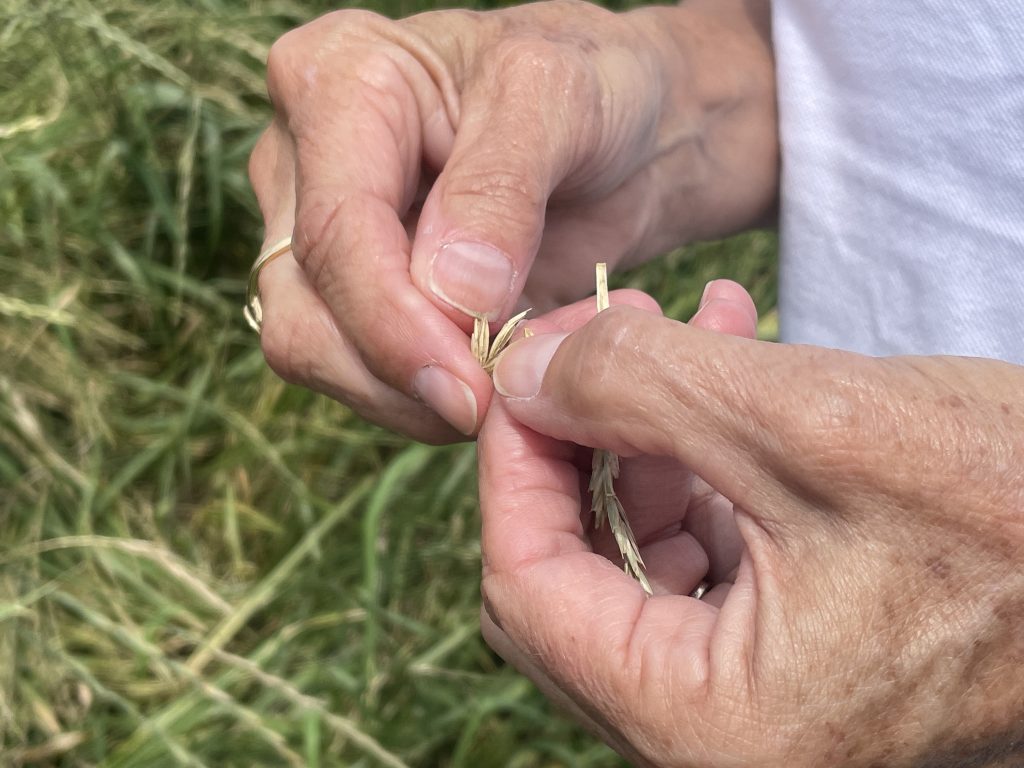The Daybreak Fund has announced its 2024 grants, providing nearly $1.6 million in grants to nonprofit organizations and community groups dedicated to addressing climate change, improving water quality, and promoting environmental justice along the western shores of Lake Michigan.
Now in its second year, the Daybreak Fund is a collaborative of eleven philanthropic partners working to invest in nature-based solutions that create climate-resilient communities while protecting natural resources. With this year’s funding, the Daybreak Fund continues to prioritize initiatives that integrate social equity, Indigenous ecological knowledge, and community-driven solutions.
“We are honored to support such a diverse and powerful group of grantees this year,” said Amber Meyer Smith, Program Officer for the Daybreak Fund. “Each project embodies the innovative, nature-based approaches that are at the core of the Fund’s mission—working to mitigate climate risks and improve water quality while addressing systemic environmental injustices.”
One of the key themes of this year’s grants is Indigenous ecological knowledge as a key nature-based solution, with projects led by Tribal organizations taking center stage. The Brothertown Indian Nation will continue their multi-year effort to restore Wild Rice in the Lake Winnebago system, a culturally and ecologically significant food source that has nearly disappeared due to pollution and climate change. The cooperative Ohe·láku (Among the Cornstalks) on the Oneida Nation Reservation will expand their regenerative farming practices, integrating solar energy into traditional corn-growing methods. Additionally, the Electa Quinney Institute at UW-Milwaukee is bringing Indigenous knowledge into land restoration projects, offering hands-on learning opportunities while stewarding lands designated for flood management and ecological restoration. Together, these Indigenous-led projects highlight the Daybreak Fund’s commitment to honoring traditional ecological practices as a powerful means to address the climate crisis and restore balance to the environment.
“The Daybreak Fund is proud to invest in Indigenous-led projects that bring centuries of wisdom about land, water, and forest stewardship into the heart of climate action,” said Vicki Elkin, Executive Director of the Fund for Lake Michigan, a partner in the Daybreak Fund collaborative. “These efforts reflect the essential role that Indigenous knowledge plays in safeguarding the natural world.”
In addition to these Indigenous-led projects, the Daybreak Fund is supporting transformative initiatives that promote sustainable, climate-friendly agricultural practices. A grant to the Michael Fields Agricultural Institute will support the scaling of agroforestry systems on farms in Southeast Wisconsin using innovative financing methods. This project demonstrates how agroforestry—an approach that integrates trees into crop and livestock systems—can be a powerful, nature-based solution for sequestering carbon, improving soil health, and enhancing biodiversity, all while offering new revenue streams for farmers.
Local, community-led efforts are also a major focus of this year’s funding, with projects that engage communities most impacted by environmental injustice to implement nature-based climate solutions. Groundwork Milwaukee will continue their grassroots organizing efforts in the Metcalfe Park neighborhood, training Climate Action Groups to lead projects that repurpose vacant lots and build resilience to flooding and extreme heat. Similarly, Nearby Nature Milwaukee will plant trees and restore habitat along the six-mile Lincoln Creek Corridor, while Faith in Place empowers faith communities in Milwaukee and Lake County to implement projects that promote both environmental and social equity. The Sherman Park Community Association’s Greening Congregations Project will help faith-based organizations and small businesses reduce energy use and adopt green stormwater infrastructure, improving community resilience in areas burdened by aging infrastructure and environmental injustices.
“Our grantees are deeply embedded in the communities they serve, and their projects reflect a commitment to addressing the unique climate risks these neighborhoods face,” added Meyer Smith. “Whether it’s restoring urban green spaces, reducing heat islands and flood risks, or promoting renewable energy, each initiative is designed to create tangible, lasting improvements in climate resilience.”
In its second year, the Daybreak Fund continues to exceed its commitment to equity, directing 85% of its resources to historically marginalized and frontline communities most impacted by climate change and pollution. Each funded project reflects the Fund’s mission of leveraging nature-based solutions to both protect the environment and address long-standing social inequities.
Grantees for 2024 include:
- Brothertown Indian Nation
- Brushwood Center at Ryerson Woods
- Clean Wisconsin, in partnership with Michael Fields Agricultural Institute, Savanna Institute, and Grasslands 2.0
- Climate Change Coalition of Door County
- Electa Quinney Institute at UW-Milwaukee
- Faith in Place
- Groundwork Milwaukee
- Land Restoration School
- Michael Fields Agricultural Institute
- Midwest Renewable Energy Association
- Nearby Nature Milwaukee
- Ohe·láku (Among the Cornstalks)
- Ozaukee Washington Land Trust
- Root-Pike Watershed Initiative Network
- Sherman Park Community Association
- Trust for Public Land
For more details about each project, please visit: www.daybreak.fund/grantees

